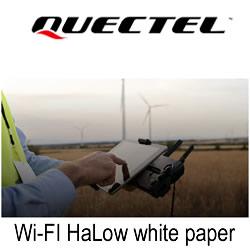Effluent Subsurface Drip Irrigation Solution for Dairies Receives 2020 U.S. Dairy Sustainability Award for Outstanding Community Impact
The Innovation Center for U.S. Dairy Recognizes the Project Partnership Between Netafim USA, Sustainable Conservation, De Jager Dairy, McRee Dairy and Western United Dairies For Enhancing Dairy Operation Sustainability
Netafim USA, along with project partners Sustainable Conservation, De Jager Dairy, McRee Dairy and Western United Dairies, has received the 2020 U.S. Dairy Sustainability Award for Outstanding Community Impact for its innovative Effluent Subsurface Drip Irrigation (SDI-E) system for forage crops.
Presented by the Innovation Center for U.S. Dairy, the award recognizes the role of dairy community stakeholders in developing practical and effective solutions to address the shared challenges and goals of the communities in which they live and work.
Nominated by the California Milk Advisory Board (CMAB), the award-winning project first began to take shape in 2014 when Netafim teamed up with the California-based nonprofit organization Sustainable Conservation and De Jager Dairy to develop a subsurface drip irrigation solution that enables the consistent and reliable application of dairy effluent as a nutrient-rich fertilizer. The success of the pilot program led to the expansion of the partnership to include McRee Dairy and Western United Dairies through a Conservation Innovation Grant from the U.S. Department of Agriculture, National Resources Conservation Service.
The collaboration resulted in the development of an innovative system that uses advanced filtration and proprietary, patent-pending technology developed by Netafim to blend dairy wastewater with fresh water at an optimum ratio through monitoring of the electrical conductivity (EC) in the water as it passes by a sensor. As the EC of the water changes, Netafim's NETBEAT system is able to make real-time adjustments to the blending valves in order to keep the fertilizer mixture in a prescribed ratio as it is delivered to the plant's roots though drip irrigation tubing buried below the surface. This process not only re-uses water, but also recycles manure as a natural crop nutrient and soil builder, reducing the need for commercial fertilizer.
In addition to the water savings provided by drip irrigation, field trials have shown an increase in nitrogen use efficiency of up to 47 percent. This results in more of this organic fertilizer being taken up by the plant, preventing the leaching of excess nutrients from the soil to the groundwater below. The system has also shown to help decrease the emission of greenhouse gases.
"We are honored to be recognized alongside our project partners by U.S. Dairy for our commitment to improve the sustainability, efficiency, and profitability of today's dairy farmer," said Mike Hemman, President and CEO of Netafim USA. "The development of the SDI-E system is a testament to the power of what can happen when a group of industry partners comes together. Through a collaborative partnership, we were able to help address the challenge of increasing productivity while also achieving the environmental sustainability needs of the dairy industry."
The award comes on the heels of the recent announcement that the SDI-E system is eligible for cost sharing ($2,871 per acre) through the USDA's Environmental Quality Incentives Program (EQIP).
"The SDI-E system removes many operational challenges and the NRCS funding makes the implementation of this system a cost-effective solution for dairy farmers in the nation's #1 dairy state," added Hemman.
Learn more about the award at www.usdairy.com, and more about Netafim's Effluent Drip Irrigation Solution by visiting www.netafimusa.com/effluent.
ABOUT NETAFIM USA
Netafim USA, based in Fresno, CA, develops and manufactures drip irrigation systems for agriculture, landscape & turf, greenhouse & nursery, mining and wastewater. Netafim offers an extensive range of irrigation solutions including driplines, filters, sprinklers, valves, water meters and digital farming equipment for complete dripline system installations. For more information go to www.netafimusa.com.
Featured Product

How to overcome GNSS limitations with RTK correction services
Although GNSS offers ubiquitous coverage worldwide, its accuracy can be hindered in some situations - signals can be attenuated by heavy vegetation, for example, or obstructed by tall buildings in dense urban canyons. This results in signals being received indirectly or via the multipath effect, leading to inaccuracy, or even blocked entirely. Unimpeded GNSS positioning in all real world scenarios is therefore unrealistic - creating a need for supporting technologies, such as real time kinematic (RTK) positioning and dead reckoning, to enable centimeter-accuracy for newer mass-market IoT devices.
